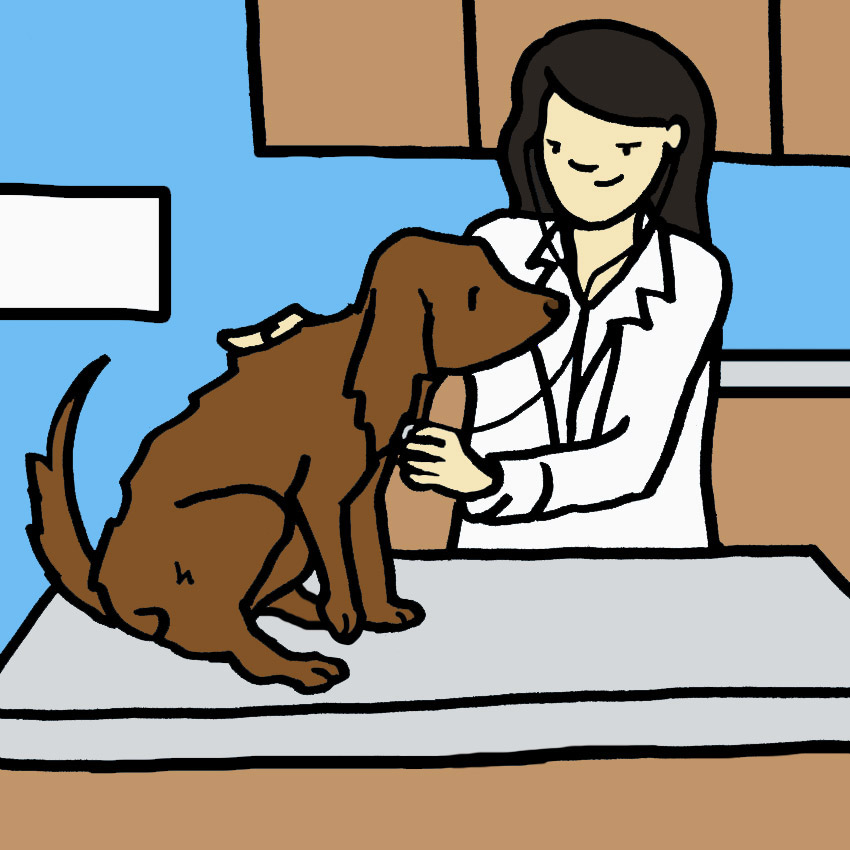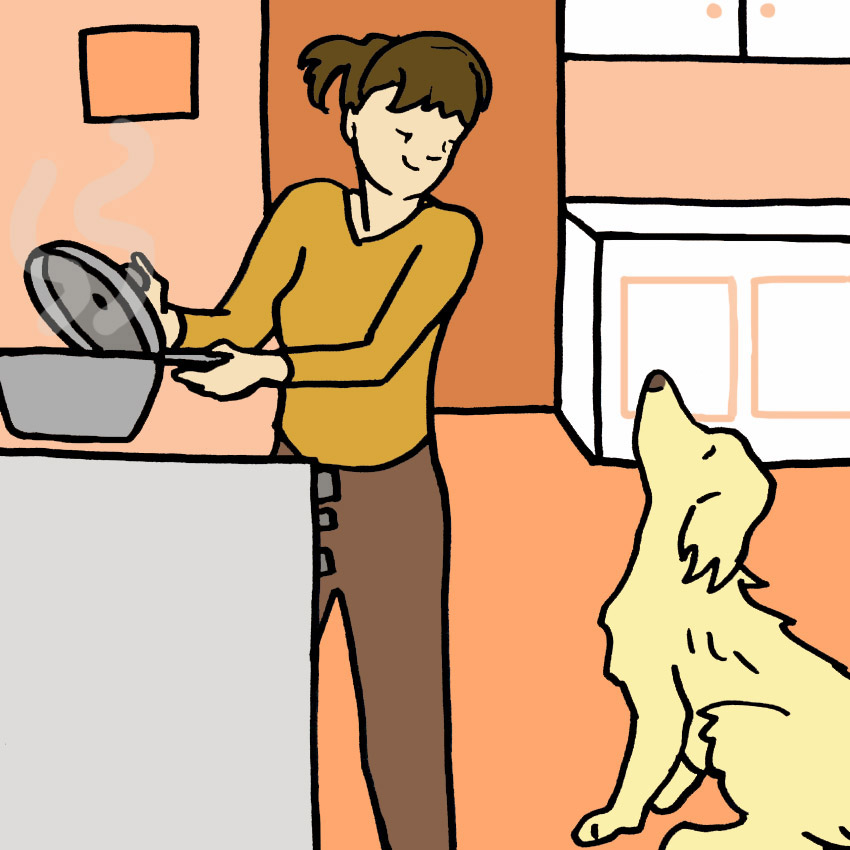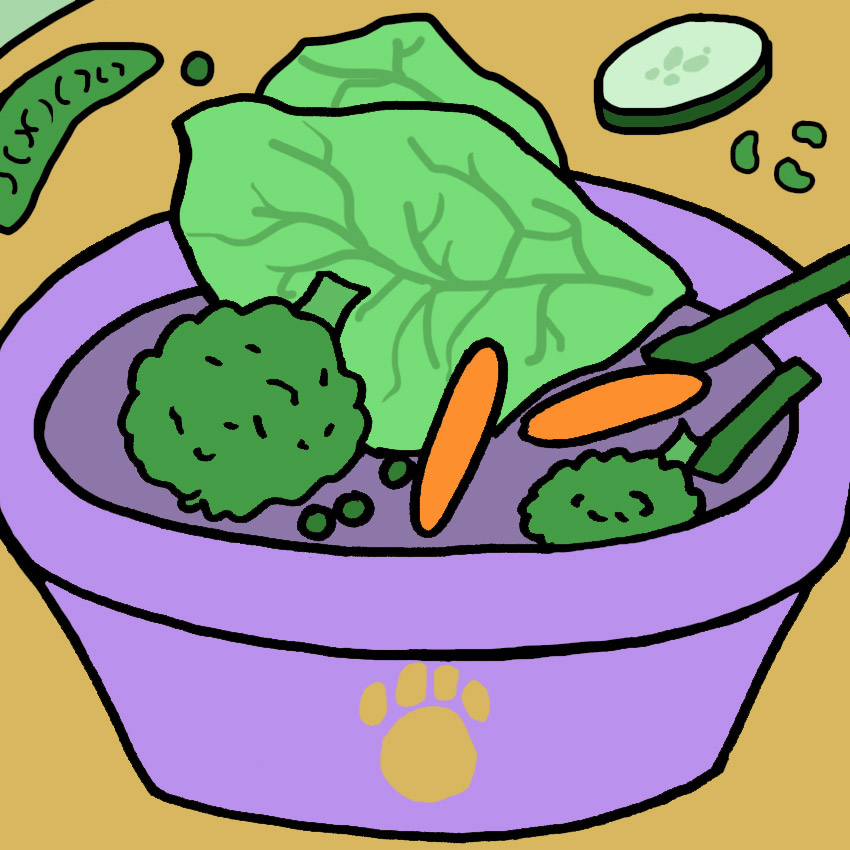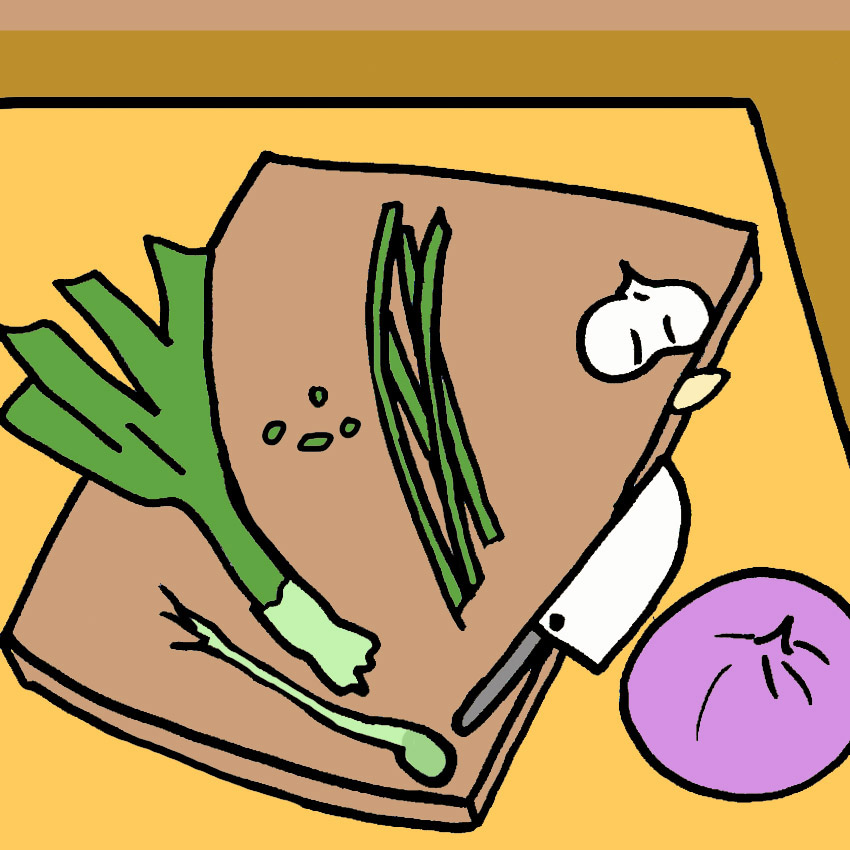Does your dog sometimes drag himself over to his dish like he just doesn’t even want to look at the same old food, much less eat it?
Sometimes I feel bad serving my dog the same dog food every day. I want to try giving my dog "people" food, but I also want to make sure that I'm keeping my dog healthy.
There are some healthy "people" foods that you can feed dogs, but it's very important to know which ones and understand the benefits or possible side effects of feeding the food to your dog.
Cauliflower is something I frequently eat as a side vegetable dish, but can dogs eat cauliflower?
Interestingly enough, they can.
Cauliflower is not toxic to dogs, according to Jessica Potosky, doctor of veterinary medicine (DVM). “We don’t recommend feeding them much of it at a time, as anything not a part of the usual diet, especially in excess, can cause gastrointestinal problems, such as nausea, gas or loose stools," she said. "But a little at a time is fine. A couple of bites of the florets would probably be enough for a small dog, a little more for a larger one.”
Cauliflower Health Benefits For Dogs

Cauliflower is known for its nutritional qualities. It’s full of vitamins, minerals, and soluble fiber. Cauliflower may reduce inflammation, and it contains isothiocyanates, which may help prevent cancer. Cauliflower doesn’t have quite as many nutrients as broccoli, another cruciferous vegetable, but it does have fewer calories.
According to Dr. Potosky, “Small bites of low-calorie cauliflower or other vegetables could even be helpful as treats for overweight dogs instead of the usual calorie packed treats we buy for them.”
Dogs need a diet heavy in meat, and vegetables should be a small portion of their total diet.
Some experts recommend no more than 5 percent of their diet should be vegetables, while others allow a greater percentage. If you look at your dog’s dry food bag to see the breakdown of nutrients, you’ll see that vegetables and fruits are listed as the very last items, even after supplemental vitamins and minerals. In other words, dogs can enjoy cauliflower, but they don’t need a lot of it.
How To Cook Cauliflower For Dogs

We humans can enjoy munching on raw chunks of cauliflower or other vegetables, but the same isn't necessarily true for dogs.
Many dogs tend to swallow raw bites of vegetables whole, which can cause choking or digestive issues. A dog’s digestive tract is also short compared to a human’s, so it is probably best to cook the cauliflower before feeding it to your dog.
Leaves and the cauliflower florets are both safe and tasty, but forget the stems. Cauliflower can be boiled, steamed, roasted, baked, or grilled for dogs, according to Munch.Zone. The florets can be whole, bite-sized pieces, or they can be pureed.
Other Dog-Friendly Vegetables

Besides cauliflower, there are a great many vegetables that your dog can eat. Dogs can also eat broccoli, which has a few more nutrients than cauliflower and is believed by many people to be tastier. However, broccoli does have more calories and more fiber than cauliflower.
Cabbage and brussels sprouts are in the same family as cauliflower and broccoli, and both are vegetables your dog can safely eat. Again, it is better for your dog if these vegetables are cooked rather than eaten raw.
Carrots are a vegetable that your dog will likely love for its sweet flavor, and so are sweet potatoes. Petcha.com suggests creating a chew stick by dehydrating the sweet potatoes. You know how much your dog loves to chew!
Asparagus, cucumbers, green beans, edamame, and various peas are also safe vegetables for your dog to eat. Just be sure to check the best cooking methods, nutritional value and serving size.
Vegetables Dogs Can’t Eat

There are a great many vegetables your dog can eat, but there are some you should definitely not feed her.
Vegetables in the allium family include onion, garlic, leek, shallots, chives, and scallions. All of them are poisonous plants for dogs and cats, according to this research study. Do not feed them or any food containing them to your dog.
There is some controversy over whether or not nightshade vegetables might be a contributing factor to arthritis and joint inflammation. Nightshade vegetables include potatoes, eggplant, tomatoes, and bell peppers. Many authorities say to avoid nightshade vegetables if your dog has arthritis, and many dog owners avoid them just to be safe.
As you can plainly see, the complete answer to the question "Can dogs eat cauliflower?" requires more than a simple yes or no, and the same is true for all other vegetables. Don’t even get me started on fruits! It’s obviously important that we guard our dogs’ health and pay close attention to what we give them to eat, even doing a little research to find correct information and protect our pet babies.
Please SHARE this article with dog owners that you know. You may be instrumental in saving a dog’s life!




